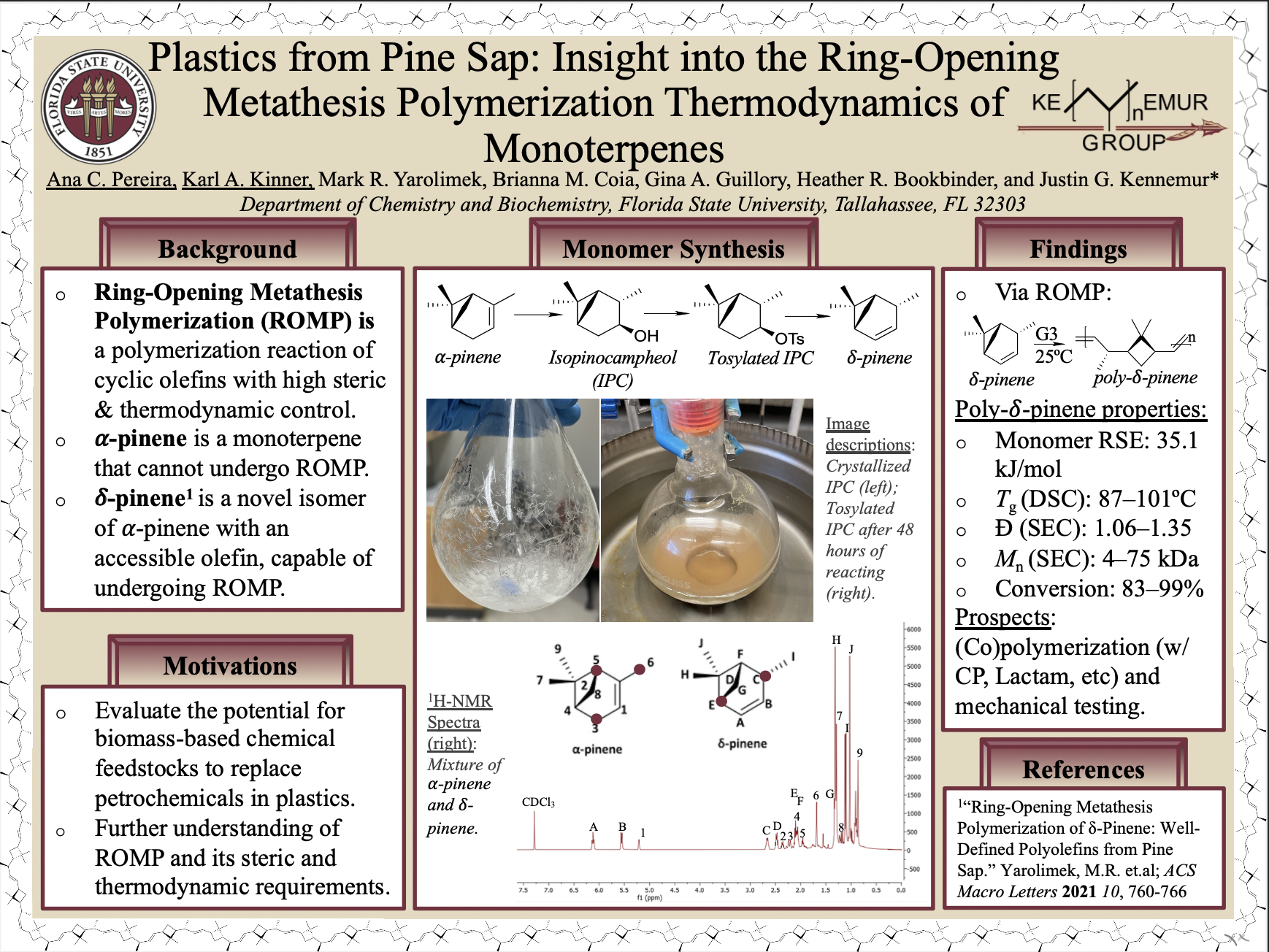Research Symposium
23rd annual Undergraduate Research Symposium, April 6, 2023
Ana Pereira Poster Session 2: 1:30 pm - 2:30 pm/ Poster #316

BIO
Ana Pereira is a second year undergraduate student at FSU. In addition to their commitments as a physics major and as a laboratory assistant under Dr. J. Kennemur's lab, they are also a tour guide for FSU's Honors Program Academic Recruitment Organization, an FGSLAMP scholar, and a tutor for general biology, chemistry, and physics courses at the Academic Center for Excellence. Earlier this year, Ana presented the progress of this research at the American Physical Society's Regional Conference for Undergraduate Women (and Underrepresented Minorities) in Physics at the University of Central Florida.
Plastics from Pine Sap: Insight into the Ring-Opening Metathesis Polymerization Thermodynamics of Monoterpenes
Authors: Ana Pereira, Dr. Justin KennemurStudent Major: Physics
Mentor: Dr. Justin Kennemur
Mentor's Department: Department of Chemistry and Biochemistry Mentor's College: College of Arts and Sciences Co-Presenters: Karl Kinner
Abstract
Monoterpenes are a class of organic molecules that comprise most of the volatile components within the sap of conifer trees. Due to their abundance and ability to be harvested non-destructively, value-added use for these renewable chemical feedstocks, such as precursors to new plastics, are being investigated as potential alternatives to petroleum–derived polymers. Many monoterpenes feature unsaturated cyclic or bicyclic structures, making them candidates for ring–opening metathesis polymerization (ROMP). α-Pinene is the most abundant monoterpene produced yet long-standing attempts to transform it into polymers via ROMP have proven unsuccessful. The Kennemur Group recently utilized a two-step synthetic modification of α-pinene to produce its isomer, δ-pinene, and discovered this transformation leads to successful ROMP with high fidelity. This presentation will discuss insight into the thermodynamic requirements that can optimize the success of this polymerization. In addition to experimentation, density functional theory (DFT) has been employed to further our understanding of both α-pinene and δ-pinene derivatives and how they behave under varying conditions during ROMP. Determining optimal conditions for the ROMP of these terpene monomers is highly crucial: they each have relatively low ring strain, complicating the thermodynamic favorability of the polymerization due to simultaneous loss of entropy. These findings allow for improved predictability of the ROMP reactivity of different cyclic olefins, furthering potential replacements over petrochemicals as the dominant feedstock in plastics manufacturing. Polymer synthesis and ROMP thermodynamics will be discussed in addition to some basic thermal and mechanical properties of the resulting plastics.
Keywords: chemistry, polymers, thermodynamics, renewable


